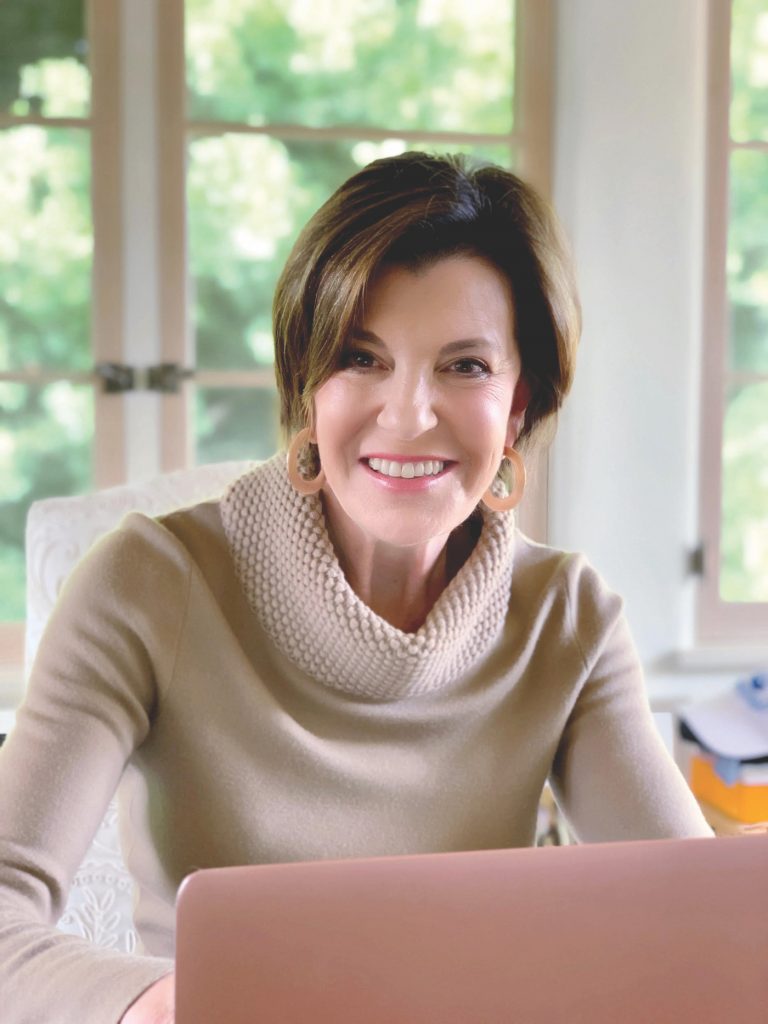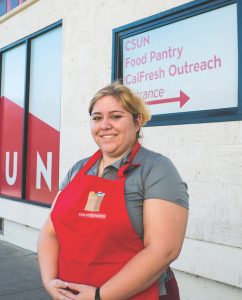A Children’s Advocate

Jacqueline Caster remembers the eureka moment that changed her life from career woman to full-time philanthropist and juvenile-justice advocate. It was in the late ‘90s, and she was taking a bath.
An urban planner at the time, Caster also served on some nonprofit boards, mostly focusing on children and their welfare. But she was frustrated and didn’t think she was having enough impact. The reliance on annual fundraising galas made her feel like all she and fellow directors were doing “was planning parties. We weren’t being used to our highest and best potential.”
What’s more, one recent gala had netted nothing. “I must have been staring at the drain thinking about all the checks I had written over the years,” Caster recalls.
There had to be a more efficient way. She mused about forming a group whose members would contribute the same amount and use the pooled funds to award a single, large grant each year. No more arm-twisting to sell gala tables or seating donors according to the size of their gifts. Everyone would sit at the same metaphorical table and have an equal say on which nonprofit would receive the grant.
Caster didn’t yet know the term, but she was envisioning a giving circle. She quit her day job and founded the Everychild Foundation in 1999 to alleviate “suffering of children in the Greater Los Angeles area, whether due to disease, disability, abuse, neglect or poverty.” She has headed the organization since inception on a volunteer basis.
Caster decided to recruit only women and started by hosting bagel-and-coffee klatches. She hired a grant consultant because “I had raised money but never given it away on any large-scale basis,” and selected the launch project: a mobile dental clinic to treat poor, largely immigrant, children. Experts were invited and told the women that, among other problems, lack of dental care could cause heart disease and each year, 50,000 days were lost at L.A. public schools due to tooth pain.
Immediately, Caster received a chorus of “count me in” pledges from women willing to pay $5,000 to join the giving circle. In 2000, Everychild was able to donate $230,000 to QueensCare, a nonprofit community health service, to cover most of the clinic’s cost. By 2006, there were enough members to reach Caster’s goal of a $1 million grant. Everychild has maintained that level every year since, supporting initiatives that tackle issues ranging from health risks, like toxic stress and asthma, to juvenile justice and foster care.
“We decided we were only going to fund innovative prototype projects that could be replicated in order to leverage the grants,” Caster says. “From the start, we were learning about critical unmet needs in the community that we could shed light on and looking for the best people who were going to bring about change.”
Caster’s civic conscience developed during childhood in Kansas City. Her father and his father were doctors; her mother was active in the community, leading various charity boards as had her grandmothers. Caster, too, aspired to have a “career helping people.” Witnessing urban blight in the ‘60s, she saw city planning as her pathway to service. After graduating from Pomona College, she simultaneously earned degrees in law from Boston University and city planning at Harvard’s Kennedy School.
Returning to California, Caster first practiced real estate law, but hated it. She pivoted to her original passion and began conducting feasibility studies for urban renewal projects, eventually opening her own firm. Along the way came marriage, children and nonprofit work before she embarked on a second “career” as a philanthropist.
Her passion for improving young people’s lives spawned a veritable third career as a juvenile-justice activist. Caster has worked with fellow advocates to craft widely emulated solutions and change not only public policy but perceptions as well. Particularly in the delinquency system, she says, “We’ve been able to open people’s eyes to the fact that these are not bad kids. These are kids who have been put in bad circumstances, and most can really change with the right guidance.”
This journey began in the mid-aughts when an Everychild member invited her to tour a local juvenile-detention facility. Caster was shocked by the Dickensian conditions, collective punishments and camp director’s adamance that rehabilitation wasn’t his job. Afterward, she led a trip for L.A. officials to study a pioneering program, ironically in Kansas City, that had cut youth recidivism. In 2017, L.A. County’s Probation Department opened a facility based on the model, where detainees live in small group cottages, wear their own clothes and learn skills like teamwork and anger management.
Next came state-wide activism. She advocated for a landmark 2012 California law that gave juveniles sentenced to life without parole the possibility of reduced terms. Then-state senator, now U.S. congressman, Ted Lieu says Caster converted him from an opponent of the law. He cast the deciding vote and has become a juvenile-justice advocate himself.
That campaign led to Caster’s appointment to the L.A. County Probation Commission and deeper insight into a vicious cycle: Incarcerating juveniles increased the odds they would return to prison as adults. To shut off this pipeline, she says, “I became an advocate for keeping kids out of the system at all costs.”
Toward that end, she applied lessons from a program Everychild had funded in 2011 in which juvenile-court judges could drop all charges and “divert” offenders to counseling, including mediation with victims. The Centinela Youth Services’ Everychild Restorative Justice Center has earned national recognition for slashing one-year recidivism rates compared with youths incarcerated in L.A. County, and at a fraction of the cost.
Even better than “judicial diversion,” Caster thought, would be an “arrest diversion” program that empowered police to refer suspects to counseling before their cases ever reached court. She persuaded the LAPD to launch a pilot program in 2013, which has since been adopted by numerous L.A.-area police departments. It also inspired the County to create a division for Youth Development and Diversion, which Caster finds encouraging but is eager to see become more robust.
Caster’s work on behalf of L.A. children isn’t done, but it’s consistent with a promising national trend. In the juvenile-justice world, she notes, “There’s now an even bigger push to do away with incarceration and treat kids in the community.”
At Everychild, too, grantees’ programs are growing and being replicated. Some of her members are starting their own children-centered philanthropies. And daughters are joining or succeeding their mothers in the Everychild family.
Figuratively and literally, Caster’s giving circle has created several virtuous ones.
